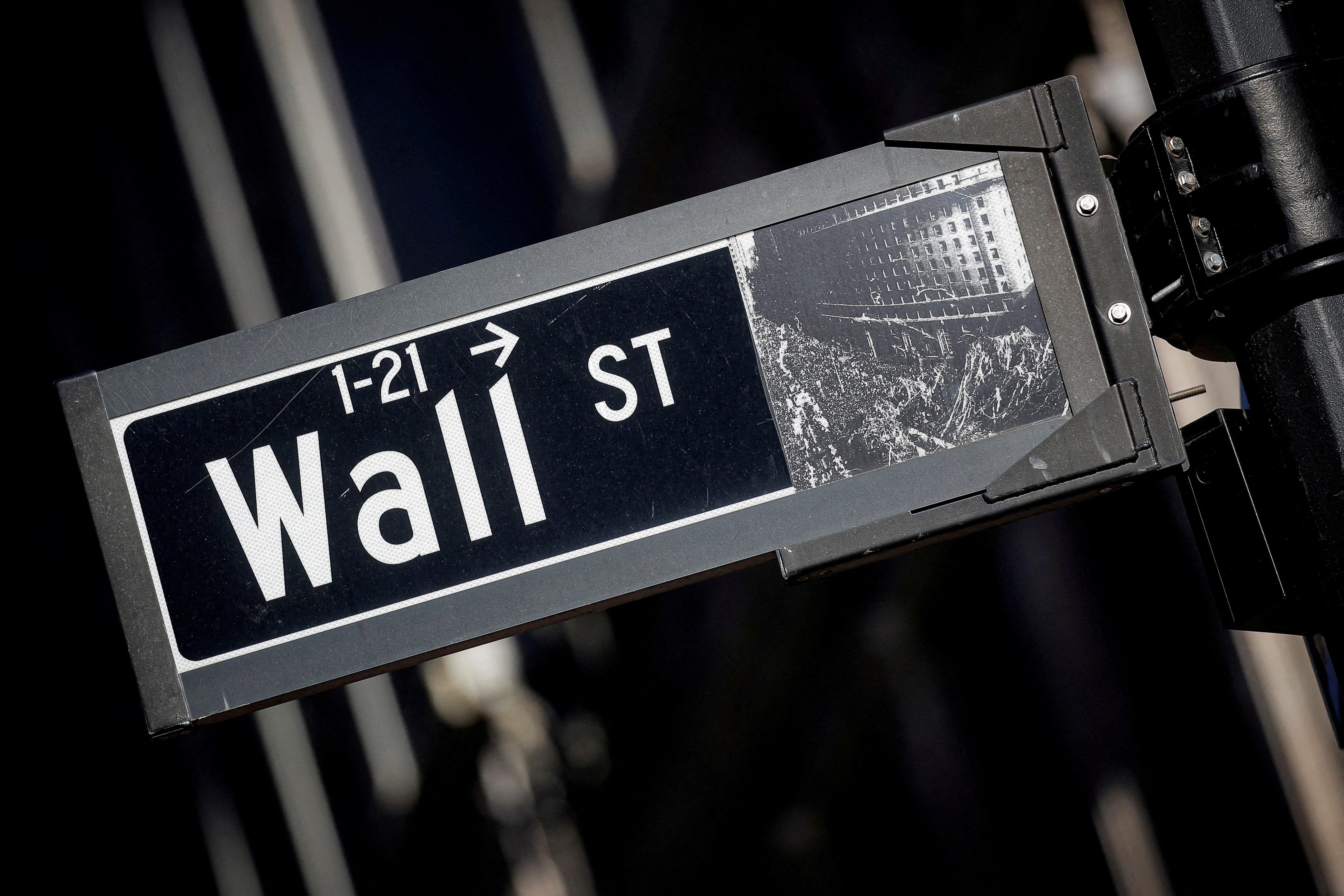
A street sign for Wall Street is seen in the financial district in New York, U.S., November 8, 2021. REUTERS/Brendan McDermid/File Photo Acquire Licensing Rights
WASHINGTON, Nov 3 (Reuters) – U.S. regulators on Friday cleared the way to increase oversight of asset managers, hedge funds, and other non-banks that they believe pose risks to the financial system, reviving a tough new regime that had been sidelined under former President Donald Trump.
The Financial Stability Oversight Council (FSOC), led by the Treasury Department and comprising other major agencies, also adopted a new framework for identifying looming risks in the financial system in an effort to make the council’s work more transparent.
Both changes to the process for designating a non-bank as a “systemically important financial institution,” or SIFI, were proposed in April.
Friday’s vote comes amid growing regulatory concerns that more and more financial activity, including lending, is migrating to the non-bank sector where they have less visibility.
While FSOC has not named any potential non-bank SIFIs, it is expected to focus on major global asset managers and hedge funds, such as BlackRock (BLK.N) and Bridgewater, potentially subjecting them to U.S. Federal Reserve oversight and heightened capital and liquidity requirements. BlackRock and Bridgewater did not immediately provide comment.
Friday’s vote reversed a Trump administration policy that regulators should police risky activities rather than single out individual firms. In a statement on Friday, Treasury Secretary Janet Yellen said that approach was based on “a flawed view of how financial risks develop and spread,” but emphasized designating firms is one of several tools the panel can employ.
Under the revamped process, FSOC will identify potential SIFIs based on existing information and give the company a chance to respond. If FSOC decides to proceed, the company would then discuss the matter with its primary regulator and the FSOC. It would only be designated if two-thirds of FSOC’s 10 members votes in favor. Designations will be reviewed annually.
The new process drew criticism from Eric Pan, head of the Investment Company Institute, which represents global asset managers.
“SIFI designation is a blunt tool that offers an outsized focus on individual companies rather than a holistic assessment of risk,” he said in a statement.
Reporting by Pete Schroeder and Carolina Mandl
Editing by Chris Reese and Michelle Price
Our Standards: The Thomson Reuters Trust Principles.





